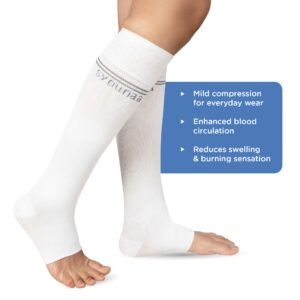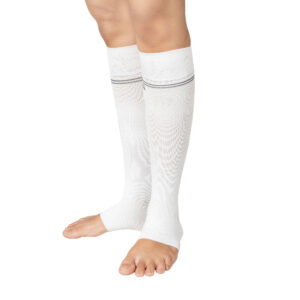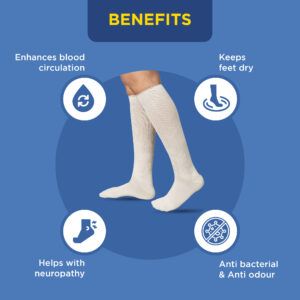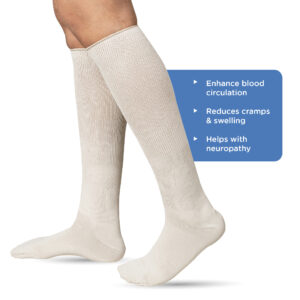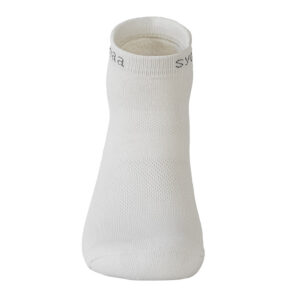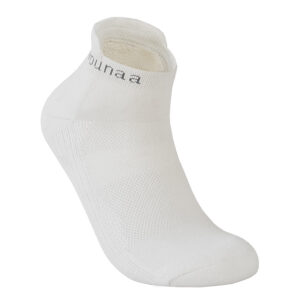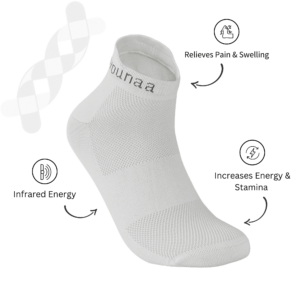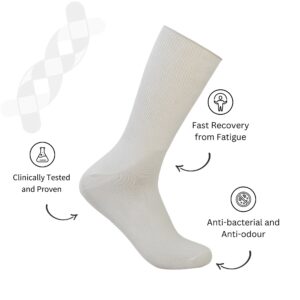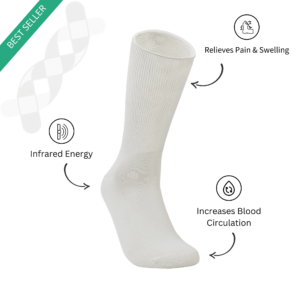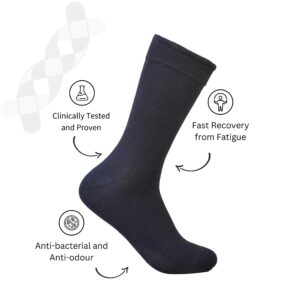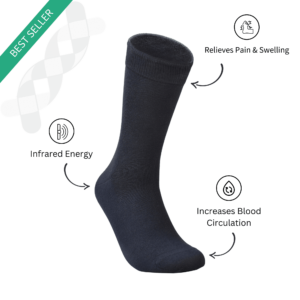We cannot say this enough – a diabetic must always pay close attention to their feet.! But sometimes, while stressing on feet most of us forget why it is important to take care of our feet all the time. So, in this article we will look at why diabetics should shower their feet with some TLC (tender loving care) and what are the consequences of not doing so.
Research shows that 20% of a diabetic’s doctor visits are related to their feet and foot amputations related to diabetes is unfortunately on the rise. But why are foot problems so fatal for diabetics? Here are a few reasons:
Diabetics are Susceptible to Peripheral Neuropathy
When blood glucose is high, it affects our nervous system. Peripheral nerves are the longest nerves in our body that extend to our upper and lower extremities like our hands and feet. They are responsible for sensation and controlling our motor skills. When we have high blood sugar these nerves are the most susceptible to damage. When they are damaged our hands and feet (especially our feet) are affected.
Those affected by peripheral neuropathy often have reduced sensation around their feet, followed by a prickling or itching sensation.
Diabetics are Prone to Peripheral Arterial Disease
Just like the peripheral nerve, excess blood sugar can affect the peripheral arteries as well. These arteries are responsible for supplying our feet with oxygen. When diabetes affects narrows our peripheral arteries, we are more likely to have reduced oxygen flow around our feet.
Reduced blood flow and oxygenation from peripheral arterial disease can limit the body’s natural tendencies to heal itself. This is why diabetics often have trouble walking or often have pain and discomfort around their feet.
The Harmful After-Affects of Loss of Protective Sensation
While peripheral neuropathy causes a loss of sensation, arterial disease depletes the body’s natural ability to heal itself. A combination of the two is very risky. When a person cannot identify pain and take measures to cure themselves, it is called ‘loss of protective sensation’. As a diabetic looses sensation around their feet they are less likely to feel a cut or a bruise. Their lack of blood circulation around their feet will slow down the healing process of the wound and may cause it to become septic. In these cases, it is often too late when by the time a diabetic seeks medical advice for their wound.
Vulnerability to Infections
With reduced healing abilities, diabetics are prone to bacterial and fungal infections around their feet. Sweat accumulation and poor hygiene can also accelerate infections and since the body cannot combat infections as well as it used to, it can grow very quickly into something serious.
How Do We Take Care of Our Feet?
Diabetics need to take care of their health but since their feet are extremely vulnerable, they must pay close attention to their feet. Here are some simple tips that you must follow in order to keep your feet safe from cuts, soars and infections.
Check your Feet Regularly
Diabetics must check their feet everyday. Go through them thoroughly for cuts, sores and infections. If you find and mild infection, discolouration, scabs and sores you can wait a day for it to heal. However, if it is the same or worse after a span of 24 hours, consult your medical practitioner immediately.
Cut Your Toe Nails Often
Nails can often grow and curl into our feet. This is one of the most common reasons for infections. We can solve this by cutting our toe nails especially when they start separating from your feet. Cut them preferably after a bath because that is when your nails are soft. Be careful not to cut your skin. Some doctors say that filing should be the only way you trim your toe nails. You can use which ever method you find comfortable.
Maintain Cleanliness and Hygiene Around Your Feet
Wash your feet every day with lukewarm water and a mild soap. You can wash it more than once during the summers or if your feet accumulate too much sweat. Do not soak your feet in water as it causes the skin to swell and become more sensitive to infection. Always dry your feet well. Since the places between your toes are more likely to remain moist you can apply mild talcum powder around those areas.
Always Wear Footwear (Even at Home)
Make it a point to wear comfortable shoes outdoors and socks or slippers indoors. Syounaa socks are ideal for diabetics because they absorb accumulated sweat from your feet and keeps safe from germ accumulation. They also promote blood circulation and oxygenation around your feet to encourage natural healing.
Avoid Heals and Uncomfortable Footwear
Stay away from footwear that is likely to give you foot sores or cut circulation around your feet. As we said earlier, it is harder for a diabetic to recover from foot sores. So, it’s better to prevent blisters from occurring in the first place. Avoid uncomfortable footwear as much as possible. If you have a meeting and must wear formal footwear, bring a pair of comfortable footwear so that you can change once the event is over.
Moisturise your Feet
Use a mild moisturiser to massage your feet. This will reduce dryness but also promote blood circulation. Coconut oil is a natural moisturiser with antiseptic properties. Just make sure to completely massage the moisturiser in as residuals can cause infection.
Foot problems are always taken seriously for diabetics and these are the main reasons behind it. But there are preventive measures even for the most aggressive illnesses. By following the precautionary measures, we can reduce the risks of diabetes associated foot problems.









